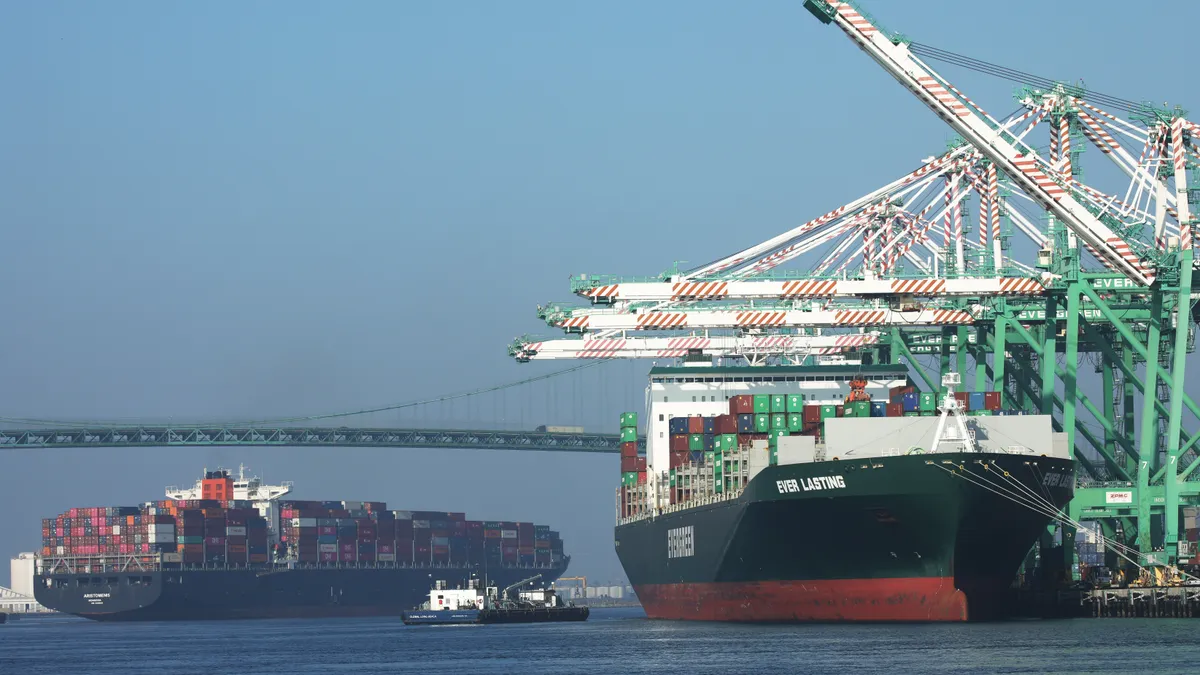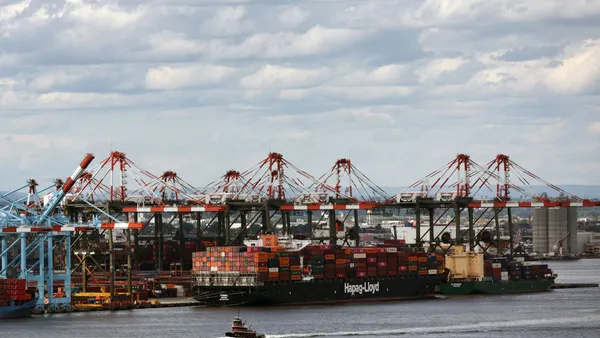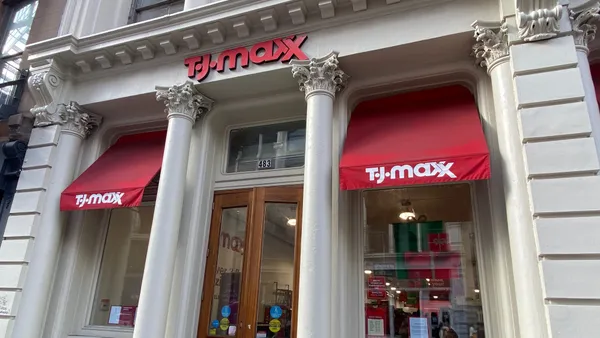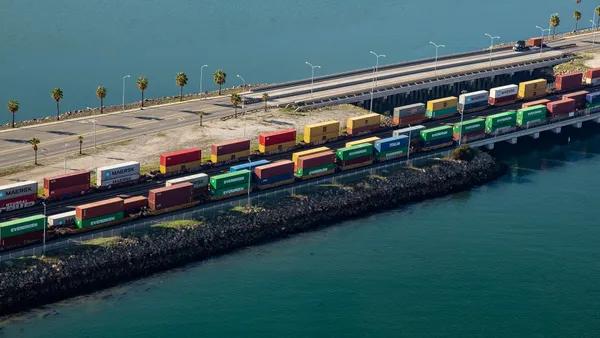Dive Brief:
- Five of California’s largest ports have agreed to advance a data-sharing partnership to better coordinate freight movement and improve resilience.
- The ports of Los Angeles, Long Beach, Oakland, San Diego and Hueneme signed a Memorandum of Understanding on Wednesday to launch the California Port Data Partnership. Ports will now work to advance a cloud-based system aimed at standardizing data and boosting cargo fluidity.
- The data system will be funded through a $27 million state grant. California earmarked $1.2 billion for one-time freight and infrastructure projects as part of its state budget finalized last year.
Dive Insight:
The state partnership aims to break down data silos between ports and address the lack of visibility into cargo movement, one of the key drivers of supply chain chaos at West Coast ports in 2021.
“During this pandemic, we saw what happened when we did not prioritize this industry and the catastrophic effects that it has had on the supply chain,” Mike Gipson, a state representative for areas around the ports of Los Angeles and Long Beach, said at a press conference Wednesday.
The MOU outlines the framework for how a collaborative data system will be built. It includes 11 areas of cooperation, “ranging from developing data definitions to ensuring equitable access to data for users,” Dee Dee Myers, director of California’s business development agency GO-Biz, said in a release.
The $27 million in funding will be split between the five ports as grants. Half of the grant funding was contingent on ports reaching an MOU defining how they will work to help achieve real-time interoperability, according to the state funding law.
The eventual system cannot track or monitor labor on metrics such as productivity, the law says. It also cannot be used to infringe on labor’s ability to collectively bargain with ports.
“Data was essential to navigating supply chain disruption,” Port of Los Angeles Executive Director Gene Seroka said in the release. “Analytics from that data allows us to see around corners, which is not just a competitive advantage, it’s now a public necessity.”
The ports of Los Angeles and Long Beach each operate their own cloud-based cargo data systems. The Port of Long Beach said Wednesday it would use its portion of grant funding to refine its Supply Chain Information Highway, a data-sharing system involving a number of ports around the country.















